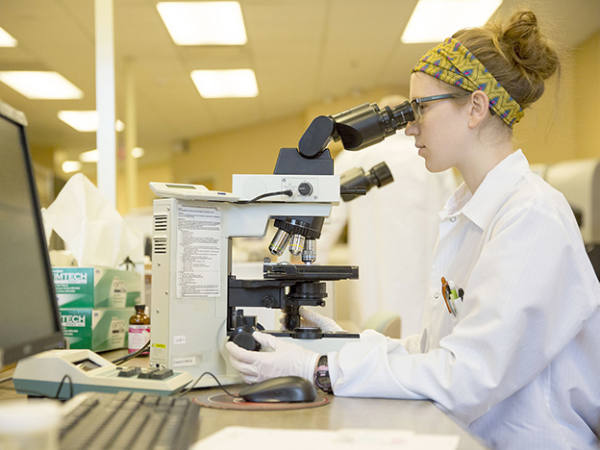The Aim indices continue to outperform large and mid-caps this year. The party is far from over.
For starters, I feel that sterling is on the verge of a major upward move against both the Euro and US dollar. The Eurozone is lagging badly behind the UK in the vaccine rollout programmes, so much so that the pace of the UK economic recovery could be surging ahead of our European cousins by the summer when we are finally released from our lockdown shackles. The Bank of England’s wise men expect a mini-consumer boom to result as pent up consumer spending is unleashed. I agree and feel that corporates will also press the button on their Covid-19 delayed investment plans. Expect some eye-catching headline GDP figures to pull in increasing international capital flows as investors look to park their money in assets in an appreciating currency. This should be good news for equity markets, and small-caps in particular.
I also feel that the oil price recovery has legs, hence why I made a call on black gold late last year (‘Reasons to be bullish’, 18 December 2020). The energy sector is a fertile hunting ground for Aim investors. You can play these themes through the Aim-traded companies I feature this week.
Avation outlines recovery plan
- Lock-up agreement reached with majority of bondholders.
- Sale of two Airbus A321-200 aircraft expected by July.
Aircraft leasing company Avation (AVAP:112.5p) has reached an important lock-up agreement with its bondholders to extend US$342m (£248m) of senior loan notes that were due to mature in May 2021. In return for extending the maturity date to October 2026, the bondholders will receive 6m call warrants to buy Avation’s shares at 114.5p (expiry October 2026).
The transaction is expected to complete later this week. It’s important because the 2021 senior loan note issue represents one third of Avation’s entire gross debt of US$1.07bn on which the company pays an average interest rate of 4.6 per cent. Uncertainty surrounding the pending maturity of the bonds has been a major drag on investor sentiment and explains why the share price has yet to recover since the stock market crash.
The directors also gave a detailed operational and financial update on the 46-strong fleet. Since the start of the Covid-19 pandemic, Avation has agreed support packages with 14 of its 19 airline customers whereby US$25.9m of lease payments have been deferred. To mitigate the cash flow impact, Avation rescheduled US$31m of loan amortisation with its lenders. Bearing this in mind, seven of the 14 airline customers have now returned to making normal monthly payments, and the majority are operating at above 50 per cent of pre-Covid-19 levels.
A decent geographic spread – Avation’s fleet is spread across 15 countries – has certainly helped diversify risk. For instance, Latvia (airBaltic), Vietnam (Vietjet) and Taiwan (Eva Air) have only been modestly impacted by the pandemic. The three airlines account for 66 per cent of Avation’s total contracted revenue of US$722m which is due to be collected over the next 6.5 years. It also explains why Avation achieved a cash collection rate of 65 per cent across all its leases in the six months to 31 December 2020.
Although the Covid-19 related disruption means that Avation is guiding investors to expect a 25 per cent dip in revenue to US$101m in the financial year to 30 June 2021, the directors anticipate compound annual revenue growth rate of 7 per cent in the subsequent four financial years. I think they are being conservative given Avation is mainly focused on higher growth regional markets through its fleet of sub-100 seat turboprop and narrow-body aircraft, with a strong bias towards Asia.
The fact that the company has just entered a new eight-year lease at current market rates with an existing Asian client airline for a new ATR72-600 aircraft highlights ongoing demand in a market segment that should bounce back quickly during the global economic recovery. These demand drivers also support management’s expectations that Avation will be able to either re-lease or sell the remaining seven ATR-72 aircraft that were previously leased to Virgin Australia before it went into administration in April 2020. Avation has already reassigned leases on four aircraft. The total debt on the Virgin Australia aircraft was only US$24m, so most were unencumbered. In addition, Avation expects to recoup between US$5m and $7m from the airline’s administrator.
Importantly, Avation’s gross cash balance of US$144m is US$26.6m higher than at the end of 2020 and the company is actively marketing for sale two of its seven Airbus A321-200 aircraft to further boost liquidity. Expect a transaction to conclude by July and one that should realise net proceeds of US$30m after senior debt repayments.
The bottom line is that with Avation’s market capitalisation of £71m less than half net asset value of £160m (254p a share), potential for pre-tax profit after debt service payments to recover to more than US$20m in the 2022/23 financial year (as per the financial projections given to bondholders), is simply not being priced in.
As the heightened risk premium that has been depressing Avation’s valuation since I last suggested buying the shares, at 132p (‘Three undervalued small-cap shares, 5 May 2020) starts to unwind, and airline traffic recovers, the share price should literally take-off. Recovery buy.
Trinity’s highlights potential to hit pay dirt
- Industry leading operating break-even of US$20.50 per barrel.
- Pursuing exciting developments with industry partner Cairn Energy.
Trinity Exploration & Production (TRIN:12p), an independent oil and gas explorer and producer focused on Trinidad and Tobago, has released a positive and informative pre-close trading update.
Last year, Trinity’s average daily production increased 7 per cent to 3,226 barrels of oil per day (bopd) and it was profitable, too, even though the average realised oil price declined from US$58.10 to US$37.40 per barrel. That’s because the company’s operating break-even was reduced by almost $6 per barrel to an industry leading US$20.50 per barrel, the fifth consecutive year it has been below US$30 per barrel. House broker Cenkos Securities estimates Trinity made operating profits of US$3.3m and generated free cash flow of US$4.2m, no mean feat given the oil price collapse in the first half of 2020. Net cash increased by more than a quarter to US$17.5m.
For the current year, Cenkos expects operating profit to rise to US$6.7m based on production of 3,016 bopd and an average realised oil price of US$54.40. However, benchmark West Texas Intermediate (WTI) has rebounded to a 12-month high of US$59.73, well above the US$56 average price embedded in Cenkos’ US$59.9m revenue estimate. The risk to both the oil price and Cenkos’ forecasts look to the upside to me. That's because global stockpiles in onshore tanks and floating storage have already fallen by 300m barrels (International Energy Agency estimates) since OPEC made production cuts last May, and a vaccine-driven demand boost is likely to tighten the market even further, one reason why the future price curve is in bullish backwardisation. A strong recovery in the oil price was one of my investment calls of 2021 (‘Reasons to be bullish’, 18 December 2020). Both WTI and Brent Crude benchmarks have surged by over 20 per cent since the start of the year.
This backdrop is particularly good news for Trinity. That’s because the company is not only benefiting from Trinidad and Tobago’s reform of Supplementary Petroleum Tax – the threshold for imposition of the tax has been lifted from US$50 to US$75 per barrel – but Trinity is making decent progress developing its East Coast assets. Dynamic reservoir modelling is nearing completion on the Echo block with a view to approval of the Final Development Plan in the first half of 2021 ahead of farm-down and funding discussions. Echo has potential to produce 4,000 bopd, a gamechanger for a small operator like Trinity.
I also note that Trinity and its heavyweight partner Cairn Energy (CNE) have been granted access to the data room in order to prepare and submit a development proposal for the Jubilee Field. The bid area has around 1bn barrels of estimated oil in place and forms part of the giant Trinmar group of fields that have produced over 750m barrels of oil to date and which are adjacent to Trinity’s West Coast assets in the shallow water between Trinidad and Eastern Venezuela. In addition, Trinity and Cairn Energy have submitted an expression of interest for the high impact onshore exploration play in North West District of Trinidad.
Trinity’s share price rallied 60 per cent to a high of 12.8p after I last rated the shares a buy (‘Small-cap value plays’, 15 September 2020), but still trade two-thirds below Cenkos’ 30p a share core risked NAV estimate even though net cash accounts for 30 per cent of the company’s market capitalisation. This means that Trinity’s 2P (proven) reserves of 20.6m barrels are in the price for only US$2 a barrel and that valuation attributes nil value to 20.1m barrels of 2C (contingent) resources, nor any upside from the developments being pursued with Cairn. Buy.
Kromek ramping up Covid-19 pathogen detectors.
- Placing and open offer to raise £13m.
- Proceeds to de-risk and commercialise bio-security pathogen detectors.
Kromek (KMK:16.75p), a Sedgefield-based radiation detection technology company focused on the medical, security screening and nuclear markets, has announced a placing and open offer to raise £13m at 15p a share.
Up to 25 per cent of the proceeds will be used to de-risk and commercialise Kromek’s bio-security pathogen detectors which sample air and identify the presence of any biological pathogen including Covid-19. They will be piloted in UK airports, hospitals and the retail sector in the coming months ahead of commercial roll-out. In addition, up to 20 per cent of the funds will be used to expand sales and marketing efforts for Kromek’s nuclear detection and medical imaging activities with the balance used to deleverage its balance sheet.
I feel the open offer is worth taking up. That’s because two-thirds of Cenkos Securities’ £15m revenue estimate for the 2021/22 financial year is already covered by the order book, but the house broker’s forecast excludes any contribution from the bio-security pathogen detectors. Bearing this in mind, Cenkos estimates that every £1m of additional revenue could generate £0.5m of incremental cash profit for the company. Analyst Paul Hill at Equity Development values the annual global market for the biological threat detection devices at £500m and believes that the company could win a 20 per cent share, an outcome that is simply not being priced into Kromek’s market capitalisation of £57m.
The shares doubled in price to 28p after my last article ('Covid-19 airborne threat detection profit opportunity', 14 January 2021), and the pull-back on news of the placing is a repeat buying opportunity.
■ Simon Thompson's latest book Successful Stock Picking Strategies and his previous book Stock Picking for Profit can be purchased online at www.ypdbooks.com, or by telephoning YPDBooks on 01904 431 213 to place an order. The books are being sold through no other source and are priced at £16.95 each plus postage and packaging of £3.25 [UK].
Promotion: Subject to stock availability, both books can be purchased for the promotional price of £25 with free postage and packaging.
They include case studies of Simon Thompson’s market beating Bargain Share Portfolio companies outlining the investment characteristics that made them successful investments. Simon also highlights many other investment approaches and stock screens he uses to identify small-cap companies with investment potential. Details of the content can be viewed on www.ypdbooks.com.
Simon Thompson was named 2019 Small Cap Journalist of the year at the 2019 Small Cap Awards.











